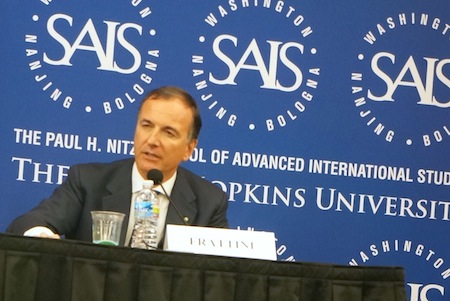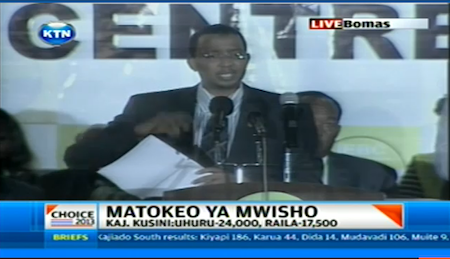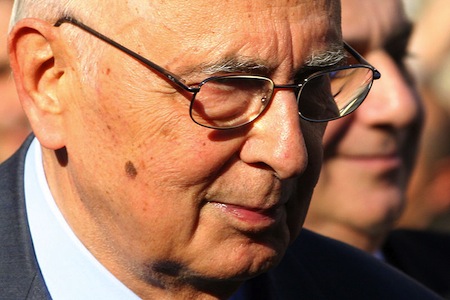Venezuela’s now-acting president Nicolás Maduro is tending to affairs of state today, including a funeral for the late president Hugo Chávez on Friday, and making sure that his longtime Venezuelan predecessor’s death doesn’t result in any turbulence.![]()
But as Francisco Toro, of the always-insightful Caracas Chronicles writes today in The New York Times, politics has not stopped simply because the 14-year leader has died:
And now, Chávez’s hand-picked successor is telling the man’s grieving followers that we — those who disagree with him — are responsible for the illness that took his life.
Within hours of the president’s death being announced, gangs of motorcycle-riding Chávez supporters burned down an encampment where opposition-minded students had been demanding that the government tell the truth about his condition. Rumors of riots circulated feverishly on Twitter throughout Tuesday evening, still unverified.
Maduro, for now at least, seems to have firmly grasped control of the government, including the immediate support of the Venezuelan military, and the parallel power structures of Chávez’s governing Partido Socialista Unido de Venezuela (PSUV, or United Socialist Party of Venezuela).
Foreign minister Elías Jaua (former vice president), who announced that Maduro was taking over as acting president, seems to be on board the Maduro bandwagon, and Cuba has long thought to have favored Maduro as Chávez’s successor (incidentally, one of the most fascinating aspects of the past three months and the months ahead is the role that Cuba plays in Venezuelan governance).
There’s a chance that Diosdado Cabello, the speaker of the National Assembly, could attempt to win the presidential nomination, but that seems unlikely, at least today. Time will tell.
Under the Venezuelan constitution, Maduro must call an election within 30 days of Chávez’s death but, as Diego Moya-Ocampos noted last month in Americas Quarterly, it’s not clear whether Maduro must call the election to be held within 30 days or whether Maduro must make the announcement within 30 days.
In one instance, Venezuela faces a presidential election on or before April 5. In another instance, Venezuela faces an election anytime over the course of 2013, conceivably, so long as it is announced before April 5. My first instinct is that Maduro will want to schedule the election as quickly as possible — to take advantage of lingering sympathy for Chávez and the legacy of his ‘Bolivarian’ project, to subdue intraparty rivals such as Cabello and to avoid giving the opposition a chance to develop support over a long campaign, especially at a time when so many problems are so visible: Venezuela’s economy remains in shaky condition, shortages and outages are commonplace and the country’s violent crime remains, as ever, some of the worst in the Western hemisphere.
Chávez’s former opponent, Henrique Capriles (pictured above), is assumed to become the candidate who will challenge Maduro in the upcoming presidential election to determine Chávez’s successor — he was the candidate of the unified opposition umbrella group, the Mesa de la Unidad Democrática (MUD), in the October 2012 presidential election.
There are a lot of strong reasons to make that assumption: Continue reading Should Capriles automatically get a second shot at Venezuela’s presidency?



